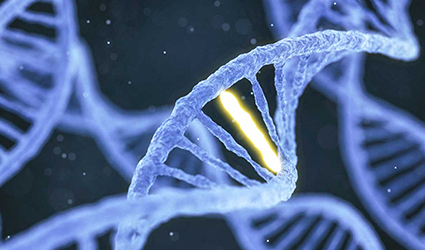Enzyme Replacement Improves CRISPR Gene Editing
August 6, 2018
Source: FierceBiotech
 1,083
1,083

Scientists at the University of Texas in Austin have found a solution to tackle the off-centered effects of the gene editing system CRISPR-Cas9, a potential treatment for diseases caused by genetic aberrations. They suggest replacing Cas9 with a different protein, Cas12a.
Cas9 functions by cutting the strands of the abnormal DNA. However, it often corrects the mistaken part of the genome, hampering normal functions instead of the disease-engendering genes. Scientists worried that this could unintentionally transform healthy cells into cancerous ones. Their anxiety proved right when last month, two studies showed that even the aimed cells and perfectly edited genes can be more vulnerable to mutations causing cancer.
The team of researchers discovered that Cas9 differs from Cas12a in its binding capacity. According to a statement, Cas9 works like super glue, while Cas12a functions more like a Velcro.
Consequently, Cas9 fastens onto the first few letters in its genomic target and ignores the rest. If a disparity is present further in the DNA strand, the enzyme might miss it and amend the wrong segment of the genome. Whereas, Cas12a examines every base pair in its target before going forward, correcting mistakes if any, the researchers confirmed. Their research paper was published in the journal Molecular Cell.
"On the whole, Cas12a is better, but there were some areas where Cas12a was still surprisingly blind to some mispairing between its RNA and the genomic target," said co-author Ilya Finkelstein, an assistant professor of molecular biosciences at the university, in the statement. "So what our work does is show a clear path forward for improving Cas12a further."
By DduRead more on
- Things to Know before Buying Newborn Baby Incubators March 31, 2022
- Highly Resistant Food Poisoning Bug Responds to Antibiotics September 6, 2018
- Smartphone Based Diagnosis to Identify Mosquitoes Transmitting Infection September 5, 2018
- 3 Natural Plant Extracts Manufacturers on Drugdu.com September 4, 2018
- Shenzhen Chuanggan – Health Assessment Facility Supplier September 4, 2018
your submission has already been received.
OK
Subscribe
Please enter a valid Email address!
Submit
The most relevant industry news & insight will be sent to you every two weeks.



